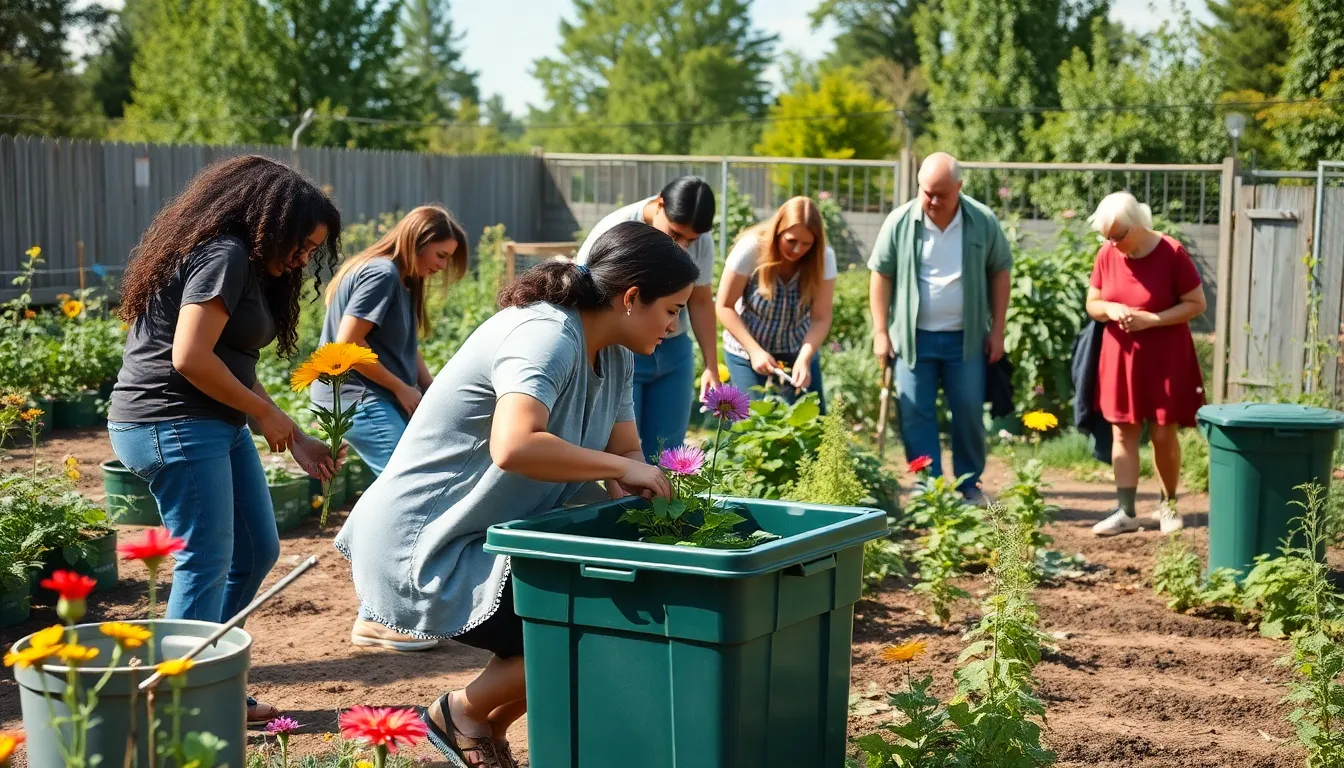Physical Address
304 North Cardinal St.
Dorchester Center, MA 02124
Physical Address
304 North Cardinal St.
Dorchester Center, MA 02124

In a world where plastic seems to multiply faster than rabbits, embracing eco-friendly activities isn’t just trendy—it’s essential. Imagine swapping your daily coffee run for a reusable cup that doesn’t come with a side of guilt. By making small, sustainable choices, anyone can contribute to a greener planet while feeling like an environmental superhero.
Understanding eco-friendly activities entails recognizing sustainable choices that minimize their environmental impact. These practices promote a healthier planet and foster responsible habits.
Eco-friendly activities refer to actions and decisions that do not harm the environment. They encompass using biodegradable products, reducing waste, and conserving resources. Such activities are vital for mitigating climate change and preserving ecosystems. As pollution levels rise, eco-friendly practices contribute to a sustainable future. Implementing these actions helps combat plastic waste, promotes biodiversity, and enhances public awareness of environmental issues.
Eco-friendly practices offer numerous benefits for the environment. They reduce greenhouse gas emissions, contributing to cleaner air and a healthier atmosphere. Conserving water plays a crucial role in maintaining vital ecosystems, while recycling minimizes landfill overflow. Supporting local agriculture decreases carbon footprints associated with food transportation. Engaging in eco-friendly activities promotes wildlife preservation, fostering a balance between human activity and nature. Collectively, these benefits enhance environmental quality and improve overall community well-being.

Engaging in eco-friendly activities offers meaningful ways to contribute to a healthier planet. Here are several popular choices.
Gardening encourages the growth of native plants, supporting local ecosystems. Creating a compost bin reduces food waste, returning nutrients to the soil. Many people enjoy growing their own vegetables, promoting sustainable food sources. Practicing organic gardening methods eliminates the need for harmful pesticides. Incorporating native flowers attracts pollinators, enhancing biodiversity. Gardening activities provide physical exercise, improving overall well-being.
Recycling involves processing materials to create new products, reducing landfill waste significantly. Many communities offer recycling programs for paper, glass, and plastics. Upcycling transforms discarded items into useful products, sparking creativity. Through this practice, individuals can create unique home decor or functional objects from waste. By choosing to recycle and upcycle, they contribute to a circular economy, decreasing resource consumption. Educational initiatives help raise awareness about the importance of responsible waste management.
Families can enjoy various eco-friendly activities while contributing positively to the environment. Engaging in sustainable practices fosters stronger connections with nature and reinforces the importance of protecting the planet.
Explore nature through hiking, biking, or kayaking. These outdoor adventures promote physical activity while minimizing carbon footprints. Local parks and nature reserves provide opportunities for families to bond and appreciate local flora and fauna. Participating in clean-up events enhances these activities and encourages stewardship of the environment. Birdwatching showcases wildlife and cultivates a deeper understanding of local ecosystems, leading to greater environmental awareness.
Crafting eco-friendly art projects engages creativity and teaches sustainability. Using recycled materials encourages resourcefulness and highlights waste reduction. Building birdhouses or insect hotels can support local wildlife. Families can also create a garden together, learning about native plants and biodiversity while cultivating vegetables. Organizing workshops on composting or recycling helps impart knowledge and inspires community involvement. Each educational project equips families with crucial skills and promotes lifelong eco-conscious behaviors.
Eco-friendly activities at home significantly reduce environmental impact. Small changes can lead to substantial improvements.
Energy conservation practices enhance sustainability in households. Installing energy-efficient light bulbs minimizes electricity use, lowering utility bills. Unplugging idle electronics prevents phantom energy consumption, conserving power. Utilizing natural light during the day reduces dependency on artificial lighting. Properly sealing windows and doors helps maintain indoor temperatures, easing heating and cooling demands. Additionally, using programmable thermostats optimizes energy use based on daily routines. Following these strategies allows families to contribute to a healthier planet while enjoying cost savings.
Sustainable eating habits promote environmental health. Choosing locally sourced foods lowers carbon footprints associated with transportation. Incorporating more plant-based meals reduces greenhouse gas emissions connected to livestock production. Meal planning minimizes food waste by ensuring proper ingredient use. Supporting farmer’s markets fosters community connections and encourages sustainable agricultural practices. Furthermore, growing herbs and vegetables at home provides fresh produce while cutting down on packaging waste. Committing to these eating practices nurtures personal well-being and strengthens ecological resilience.
Embracing eco-friendly activities is a powerful way to contribute to a healthier planet. By making small sustainable choices, individuals can significantly reduce their environmental impact. Whether it’s engaging in gardening, recycling, or participating in community clean-ups, every action counts.
Families can bond through outdoor adventures and creative projects that foster a love for nature and sustainability. These experiences not only enhance well-being but also instill lifelong eco-conscious habits.
Ultimately, adopting eco-friendly practices leads to a cleaner environment and a more vibrant community. Taking these steps today ensures a brighter future for generations to come.